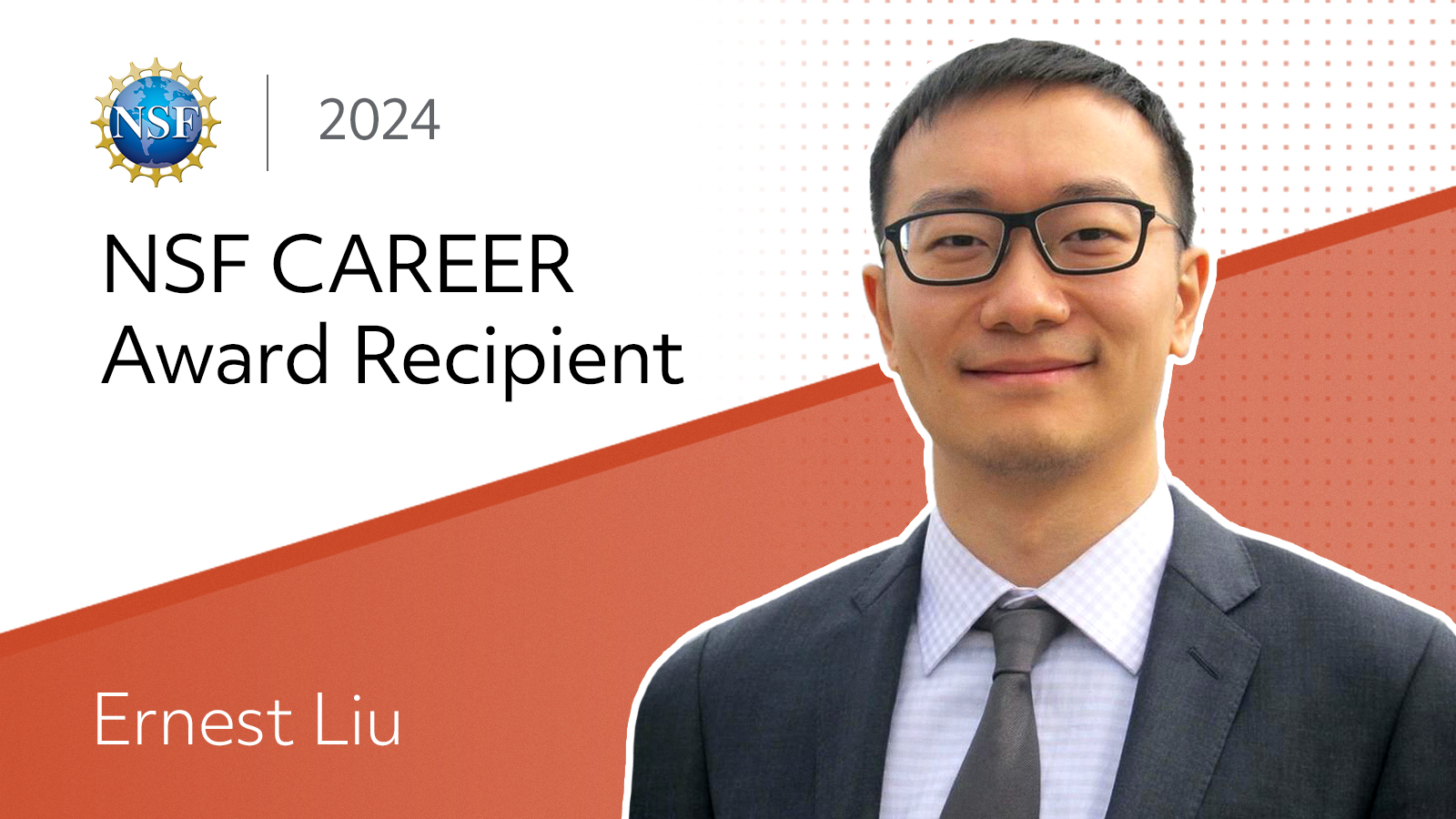Ernest Liu awarded NSF CAREER Award to study economic networks

The Economics Department at Princeton is excited to announce that Assistant Professor of Economics Ernest Liu has been awarded an NSF CAREER Award to support his research on how interconnected networks of companies, industries, technologies, and countries affect economic growth, capital flows, and industrial policy.
The Faculty Early Career Development (CAREER) Program, managed by the National Science Foundation, supports “early-career faculty who have the potential to serve as academic role models in research and education and to lead advances in the mission of their department or organization.”
Liu, who joined Princeton in 2019 and is also affiliated with Princeton’s Bendheim Center for Finance and its International Economics Section, studies networks, growth, trade, finance, and macro-development. He is also a faculty affiliate of the Julis-Rabinowitz Center for Public Policy and Finance.
Four projects on economic growth, capital flow, and industrial policy in an interdependent world
The CAREER Award will support four of Liu’s ongoing projects that develop and apply network models to answer general equilibrium, policy-relevant questions surrounding industrial policy, resource allocation, innovation, and global capital flows.
The first project develops a new growth model of the global economy featuring frictional and imperfectly-substitutable flows of goods and capital between countries. The model is suitable for studying the dynamic response of countries around the world to changes in trade and investment frictions. The project applies the model to understand the economic “decoupling” between China and the United States.
The second project develops a production network model with a continuum of sectors. The advantage of working with a continuum is that real-world input-output tables, which come with different levels of aggregations, can be seen as discretization of the continuum, thereby making these tables from different countries or time periods directly comparable. The project applies the model to newly collected, comprehensive panel data on input-output tables and analyzes the evolution of production networks across stages of economic development.
The third project studies the strategic incentives for local governments to implement industrial policy in a setting where regions are connected through input-output and trade linkages and thus local industrial policy has general equilibrium impact on other regions. Sufficient statistics that capture the local and cross-region spillover effects of industrial policies show that decentralized interventions can backfire if a local government’s policy objectives differ from the central planner’s. The project applies the model to study decentralized industrial policy and state interventions in China.
The fourth project develops a multi-country, multi-sector endogenous growth model with global knowledge spillovers across countries and sectors. The project analyzes the dynamic and global implication of an economy’s innovation policy targeting both the domestic allocation of R&D resources and the barriers to knowledge diffusion across borders. The model provides a quantitative framework to analyze questions in global innovation policy, technological competition, and protectionism relating to intellectual property rights.
More information about the award can be found here.